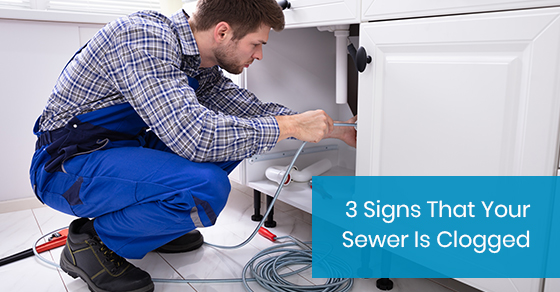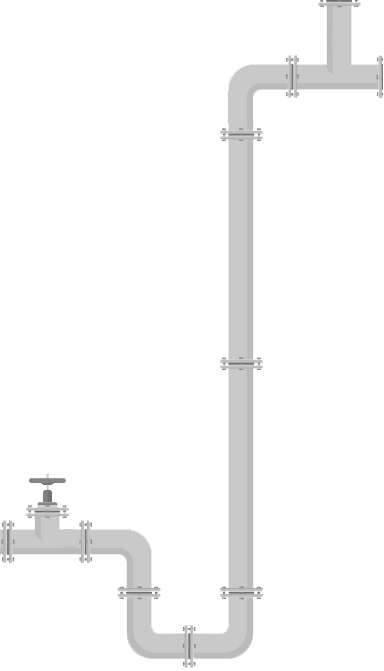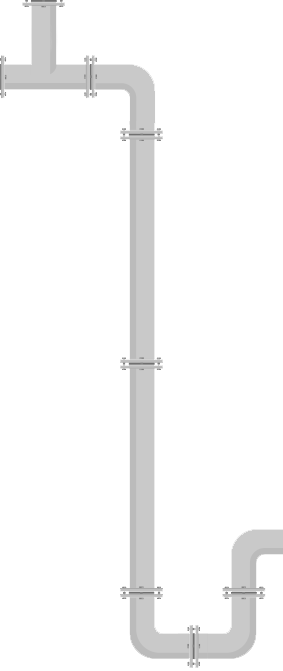3 Signs That Your Sewer Is Clogged
Posted by Jason Genah on 24-11-2020

Like many other areas of your home or building, sewer systems require regular maintenance to ensure reliable service over the long term. Without routine maintenance, owners run the risk of inconvenient, harmful, and expensive failures of the sewer lines.
A malfunctioning or clogged sewer can put human and animal health at risk, in addition to polluting the environment. In the event of a failed sewer system, the untreated sewage will start flowing to places it shouldn’t, such as the surface of the ground above the damaged sewer lines or back up in drains and plumbing fixtures in your home. If the problem is not solved immediately, the sewage could also contaminate surface water, groundwater, or marine water. These situations will allow pathogens and other harmful contaminants in the sewage to get exposed to people, animals, and the environment, causing health issues and disrupting various agricultural activities.
Signs of a Clogged Sewer
As a homeowner, you should stay alert of a failing sewer’s signs, regardless of how long it has been in place, and quickly request an inspection and quote by professional plumbers. Some of the usual signs and causes of a sewer blockage include:
- Intrusion of tree roots into sewer pipes resulting in partial or total blockage
- Collapsed or old and broken sewer pipes
- Illegal pipe connections that transmit debris into the sewer system
A quick response can save you and your loved ones from the discomfort and illnesses associated with leaking sewage, prevent costly repairs, and minimize the negative effects on the environment. However, before the problem is resolved, you should stop using all plumbing fixtures in your house to prevent a messy accident.
Here are some common signs of a clogged sewer in your Toronto home:
1. Multiple backed up lines
If you have a clog in the main sewer line, the wastewater will eventually start to back up other fixtures in your home. However, if the blockage is in only one of the laterals, it will be an isolated problem affecting a specific appliance. This is because the sewage system in a home is set up like a tree with multiple drains (branches) from the various appliances that feed into the main sewer line (trunk). As such, a blockage in the main sewer line will force the wastewater to flow back into any of the other drains where there’s little resistance.
So, if you notice a gurgling noise in several of your plumbing fixtures, including the sinks, toilets, bathtubs, and showers, then it’s likely that your main sewer line is clogged. The sounds are caused by air bubbles escaping from the clog as wastewater slowly occupies air pockets in the clog as it tries to get past the blockage. When these bubbles burst, they tend to be accompanied by a strong sewage smell, with the problem worsening as you pour more water down the drain.
2. Water overflowing into various plumbing fixtures
Without a clear route to the septic field or main sewer, wastewater in your fixtures will have nowhere to go, causing it to back up through the floor drains or into the fixtures. For instance, after using the washing machine, your toilet might start percolating or find a pool of water around the floor drain in the basement or lower levels of your home. If you use the bathroom sink, the water won’t drain normally. Instead, it might come back up into your bathtub or shower drain. If you flush the toilet, you might notice water gurgling or coming up your shower drain or tub.
3. Drainage in the sewer cleanout
The drain cleanout refers to a short pipe or special fitting attached to your home’s main sewer line, featuring a round threaded plug and a nut-like square stub on the end. The cleanout is mounted on the horizontal main drain pipe leading to the sewer main and extends from the underground pipe to the ground surface, providing plumbers with direct access to clear blockages in the pipe. It is marked by a circular concrete or plastic lid labelled “Clean Out.” If you’re not sure that you have a clog in the sewer, locate the cleanout and remove the cap. Observe to see whether the sewage is stagnant in the pipe or flowing normally. If it’s not moving, then you have a sewer line clog.
What to Do when You Have a Clogged Sewer Line
As soon as you find out that you have a clogged sewer line, shut off the main water supply valve to prevent excess water or backed up waste from flooding your home. The main water supply valve is usually located in an area close to your water heater or the basement or crawlspace. You only need to turn the knob in the right direction, as indicated by the “OFF” position. If the valve is located outside your home in a water meter box, you may need to use a wrench to turn it. Then, contact emergency plumbing services.
Emergency Plumbing Services
A clogged sewer line in Toronto qualifies as a plumbing emergency due to the associated health and environmental concerns, so it should be fixed as soon as possible. If you spot any of the signs of a sewer blockage, you should stop using the plumbing fixtures in your home until professional plumbers have resolved the problem.
To clear the clog, plumbers typically run a drain snake or cable through the sewer pipes, followed by a basic cleaning. If the problem is not apparent, they may proceed with a camera inspection to seek out the root cause. Depending on the identified cause of your clogged sewer, professional plumbers will clear the clog and then:
- Upgrade or replace damaged or deteriorated sewer pipes.
- Disconnect illegal plumbing connections, such as sump pumps, backyard drains, and other drainage systems leading to sanitary sewers.
If you suspect that you have a clogged sewer, start by turning off the water in your home and avoid using all plumbing fixtures. Then, contact a plumbing professional to assess the situation and make the necessary repairs. To avoid such problems and other plumbing emergencies in the future, consider scheduling plumbing inspections annually or as recommended by the professionals.
For more information on clogged sewers in Toronto and any other plumbing issues, contact Drain King Plumbers.




